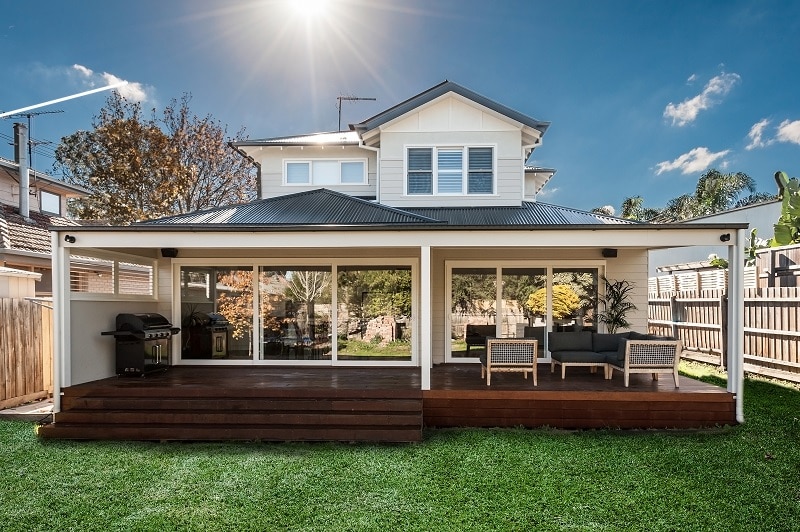Why you should choose a builder with an excellent track record
Did you know that if your builder goes bust halfway through your project you may be left with a hefty legal bill as well as an unfinished project that costs much more to fix than the original contract price?
According to Consumer Affairs Victoria, by law, builders or tradespeople must take out domestic building insurance for their clients when the cost of the works exceeds $16,000.
However, this insurance only gives you limited cover. This insurance is called domestic building insurance, previously known as ‘builders warranty insurance’, and protects consumers in the event their builder or tradesperson cannot finish the building project or fix defects because they have:
- Died
- Become insolvent, or
- Disappeared (which unfortunately happens from time to time).
If your policy was issued on or after 1 July 2015, it also provides cover if the builder fails to comply with a final order made by the Victorian Civil and Administrative Tribunal (VCAT) or a court. Your builder or tradesperson must provide you with a copy of the policy and a certificate of insurance covering your property before you pay a deposit or any other money. Domestic building insurance covers costs up to $300,000 to fix structural defects for six years and non-structural defects for two years
It all sounds good doesn’t it?
But here’s the thing: claims on the policy for work that was not completed may be limited to only 20 per cent of the contract price.
In all other cases, your builder or tradesperson is required to fix or complete works in accordance with the contract.
How it works in reality
Of course, we should be grateful that the Victorian Government provides a level of protection for consumers who choose to build their home or construct a small property development. In reality, however, it often can cost thousands in legal fees to get your claim even heard.
In cases where a builder has simply disappeared, you also have to track them down to serve the necessary legal paperwork on them to start off with.
The most common issue is when a builder goes bust, or insolvent, which was highlighted in a recent story in the media.
One couple’s one-year project stretched out to three years when their builder reportedly continually delayed the works, then became insolvent.
So far it has cost the couple “six figures” and their home is still not finished. They have had to spend thousands on legal fees and expert reports on the poor state of the building work.
According to the story, the insurance payout of $200,000 (it’s now $300,000), the maximum possible at that time, is supposed to cover building faults, legal costs and rent for up to 60 days – small comfort when you’ve been paying rent (and a mortgage) for three years as is their case.
How to protect your interests
Like all industries, the building sector has good operators and not-so-good ones. So, how do consumers protect their interests when appointing a builder for their project?
Let’s clarify the situation as it currently stands:
- If a builder goes bust during a build, warranty insurance will only cover $300,000 or 20 per cent of the contract price to either finish or rectify the issues (if any).
- Another builder will come in to finish it off and if there was, for example, $200,000 left to finish on the original build contract and the “new” builder has priced $330,000 to finish then the client will need to come up with the rest of the cash. In this example, that’s another $130,000.
These examples highlight why it’s so important to have the “right price” not the cheapest one. That’s because if your builder can’t finish the job then the client will be left to foot the bill.
Another example could be:
Builder A quotes $500,000 on a build that “should be” $650,000 (for argument’s sake). Builder A goes broke halfway through ($250,000 mark). Builder B says to finish off it will be $400,000 ($250,000 to complete the contract and the other $150,000 is to make up what the price should have been). The client will need to find another $100,000 to finish it off.
The bottom line…
When sourcing quotes for your building or small development project, ensure that you undertake the necessary research into the history of each builder.
You also need to understand the difference between a price estimate and a quote. An estimate is a ballpark figure only and really can’t be relied upon, whereas a quote is a professional assessment of all the costs involved in the project.
That is why a professional builder will charge you a fee to prepare a quote, because it takes them many hours to do so. If someone offers you a free quote, well, you should be very wary of their professionalism as well as their ability to correctly price or even finish the project.
You should also research previous projects, ask for testimonials, or even to speak to previous clients. If a professional registered builder has nothing to hide, they should have no problem with you speaking to previous clients.
The fact of that matter is that premium work often costs more because it’s of its superior quality and the builder has a strong reputation due to their many successful projects.
At the end of the day, you don’t want your dream home to become a nightmare that costs much more than the contract price because the dollar figure was more important than the quality of the finish.






